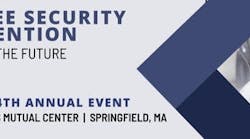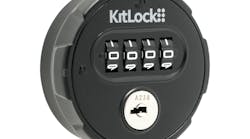Following the Newtown tragedy, school districts in Connecticut and throughout the country are reviewing their security plans and considering upgrades, including buzzer entry systems, panic buttons, and bulletproof glass, among other measures.
In Connecticut, 850 community members -- ranging from school, police and fire officials to city mayors, town selectmen, and parents -- met Monday in Southington for advice from national school security experts. The meeting was closed to the media.
"We just want to make sure people know what the facts are on a variety of issues, to help them have an informed conversation instead of one overridden by emotion," said Joseph Cirasuolo, executive director of the Connecticut Association of Public School Superintendents, one of the groups that organized the conference.
Two themes emerged during the symposium -- the need for solutions resulting from communitywide collaboration and the recognition that there is "no one-size-fits-all" approach because every community is unique.
Shamus O'Meara, a Minneapolis attorney who often works with the National School Boards Association, advised districts to take an "all-hazards" approach to their security plans, including severe weather situations and other problems.
"If you are preparing for one particular hazard and not preparing for all hazards, you've missed the point," O'Meara said. "The 'all-hazards' approach is a time-tested way of preparing for any number of risks that could occur at a school or on a campus, including active shooters."
In West Hartford, Tom Moore, assistant superintendent of schools for administration, said that the district already has a buzzer-entry system and security cameras, but is now moving toward installing "a rapid response button" -- also called a panic button. If activated in the office, it would sound a chime notifying teachers to lock down their classrooms and it would summon police.
Also, it's likely that the implementation of a card-swipe entry system will be accelerated, Moore said. He said the card swipe system is useful for after-hours when athletic groups and others are in the schools. It's more selective than distributing keys because the cards can be programmed to work for a specific time period on a particular day.
Plainville Superintendent Jeff Kitching said that the school system had hired a security consultant in late October or early November and was already on the way to evaluating safety systems before Newtown. He said the district already has a swipe card and buzzer entry system, but they are working with a vendor to add a panic button. He said the district is also working with staff to ensure that they check who is at the entrance before they are allowed in.
Karissa Niehoff, executive director of the Connecticut Association of Schools, another group involved in organizing the event, said that a key component of security plans will be addressing mental health issues. "That's got to be at the core of anything they do," she said.
Like many companies that provide school security services, Jennings Smith, a Canton-based firm, has received more inquiries since Newtown, starting that Friday night. Good security plan takes into account hardware and other security products and also people, policies and procedures, said Bill Smith, owner of the firm. "They have to be intertwined," he said. "There has to be a cultural change in that way."
Smith said that in the past, educators' main focus has been on test scores and "metrics, metrics, metrics. But their real responsibility is the safety and protection of those kids. You can't outsource that." He said that security plans often sat on shelves, never practiced on implemented.
Cost is also a key matter, he said: "The issue here is truthfully, whether schools at this juncture, because of the budget crisis, can afford these (security) upgrades. This is what's very disturbing to people."
Smith said it's important to take a "reasoned approach. You can ramp up to the point where you start making schools look like correctional facilities."
Moore expects that West Hartford, like most Connecticut schools, will spend more on security in 2013 than this past year. But, he added, the district's work on security has been steady and not only in reaction to Newtown.
Cirasuolo said on cost: "It's going to come down to: what values do we have? Where do we put our money?"
"If we think that these strategies are important enough..." Cirasuolo said, "we are going to have to come to terms with that and say, 'OK, if we want to protect our children, we have to come up with money.'" He said it might be that other things won't get done or that people will be asked to contribute money to the public good. "Not everything we do is going to cost a lot money," he said, "but some of the stuff does."
In Glastonbury, Superintendent Alan B. Bookman hopes to see more than $1 million invested in improving security systems by adding security guards to the town's elementary schools, installing inside classroom door locks in all schools, a swipe card system at all the schools, and bulletproof glass in certain locations. Bookman recognizes that there might be delays.
"The truth of the matter is the demand is extremely great, so it's even more difficult right now than it would have been six months ago," Bookman said.
In Simsbury, Superintendent Matthew Curtis said the administrators are planning a security audit of all the schools that will provide a comprehensive review of emergency response procedures and policies as well as a review of the physical layout of the schools.
The experts at the symposium strongly recommended against arming teachers or school administrators, Cirasuolo said, saying that it would be "very unrealistic and could cause more problems than it's worth." If school officials want an armed presence in the schools, Cirasuolo said, the experts recommended that it be a police officer trained to work in the schools. He noted that one-third of Connecticut schools have such personnel on site.
In South Carolina, educators are concerned over a bill pre-filed in the state House of Representatives that "would allow public-school employees to carry concealed weapons on school grounds," according to an account in the online version of The Herald in Rock Hill, S.C.
Copyright 2013 - The Hartford Courant





